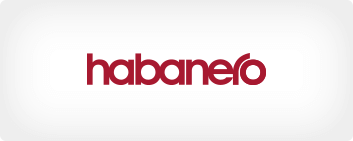If you’re a key player in your organization’s Microsoft Teams rollout and digital workplace strategy, then awareness, adoption, education and employee engagement are likely at the top of your to-do list. With Microsoft’s Teams Champion Program, you can foster a supportive community of employees who will help drive engagement for a successful rollout.
If you’re interested in launching a Microsoft Teams Champion Program but don't know where to start, you might be surprised to learn how much you already have in place. Microsoft also provides a solid framework of training, support and community engagement, making it easy to set up a successful program.
Benefits of the Microsoft Teams Champion Program
Champions can help your organization make the transition from traditional collaboration practices to Microsoft Teams and other modern digital workplace tools in alignment with your best practices and guidelines. They:
- Identify early user challenges and suggest improvements by gathering employee feedback
- Lessen the load of traditional IT support by acting as the first line of support for employees
- Keep key stakeholders in the loop with what’s happening throughout the organization through regular meetings
- Build awareness and excitement with end users around Microsoft Teams and additional Microsoft 365 tools and advanced collaboration practices by stepping up as role models and leaders
We recommend that organizations consider a Champion Program early in the planning phases of a Microsoft Teams deployment. Getting a head start can create stronger connections between users, champions and key stakeholders. Don’t worry if you launched Microsoft Teams without one; we think there are plenty of benefits to be gained regardless of when you kick-off your Champion Program.
What to consider when selecting a champion
You likely have many potential champions in your organization already. They are the natural go-to people in your workforce, often called upon informally by their coworkers because they show patience and empathy when helping others. Think about who you go to for help when you can’t find a document or are struggling to join a meeting from a new device – these are your champions.
Each team or department should have at least one or ideally two champions. In our experience, administrators and executive assistants, rather than folks from IT, are often a good group to draw from, as these individuals know the inner workings of the organization and already have an informal network of communication and support with their team and other administrators.
Roles and responsibilities of a champion
In most organizations, the champion is not a “job” but rather a complement to an existing job description or even the formalization of current responsibilities. In some organizations, it may not even be a formal part of someone’s job description.
Support the team
Champions should be the first line of defence in your support strategy. They help their team navigate challenges that would traditionally be addressed by a help desk by providing timely responses to direct support requests.
Conduct regular team meetings and collect feedback
Champions should be meeting with their team or department at least once a month to collect feedback from users on how they are adapting to the new work methods and share back upcoming changes and best practices around M365. Champions across the organization should also meet with each other regularly.
Preparing your champions for success
Setting your champions up for success is easy when you provide them with the right training and include them in the planning process. And don’t forget to ensure they are connected to the Microsoft Champion Community and its wealth of resources.
Include your champions in the planning process
If possible, involve your champions very early in planning the deployment process for Microsoft Teams, especially if you are taking an iterative or pilot-based approach. Giving them an opportunity for early involvement and input will help ensure buy-in and participation from the entire group once the Microsoft Teams rollout is underway.
Ensure your champions have the required training
Make sure that your champions have a solid understanding of Microsoft tools as well as your internal IT help desk and support functions.
With a solid understanding of Microsoft Teams and other related Microsoft 365 applications such as Office 365, champions can address most user questions and challenges.
By understanding what should go to IT and when, champions ensure internal help desk and support teams are only engaged when they can add the most value.
Don’t forget about Microsoft’s Champion Community
It is through this community that your team will learn about upcoming technology and program changes. It is a great resource and means to connect to peers and thought leaders. The program includes:
- Monthly community calls
- Support materials
- Yammer group
Getting the most out of your Champion Program
Monthly meetings with your champions and decision makers responsible for your Microsoft Teams rollout will keep your champions in the loop and engaged. They also ensure that all the insights gathered by champions get back to the team that can make decisions and evolve outcomes accordingly.
The Microsoft Champion Program is a key step in ensuring a successful journey to Microsoft Teams for your organization. Start as early as possible in the planning process, so you can identify, recruit and prepare champions to support your users through the coming change and help them get the most out of Microsoft Teams. Not only does the Champion Program take the weight of tier-one fixes off IT, but it also recognizes those empathetic employees who will drop anything to help others, no matter what it is.


.jpeg?bc=white&la=en&mw=416&modified=20260130165838&hash=095D0F305FD51C51141367B46960F57F63671A8C)
.jpeg?bc=white&la=en&mw=416&modified=20260130225717&hash=BEFCD20AA3DAC8B73C0657E188218D50B89DECA4)

